Experts
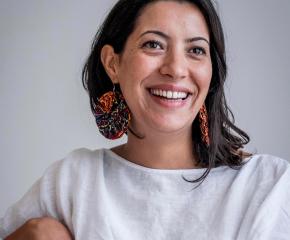
Ikram Ben Said
Ikram Ben Said is a women’s rights advocate and Founder of “Aswat Nissa” (Voices of Women), a Tunisian nonprofit promoting women’s active participation in the political and policy-making spheres while fighting against all forms of discriminations and violence against women. Her latest initiative “Women’s Political Academy” was awarded the 2014 Madeleine Albright Award. The Academy boosts leadership skills of women candidates from all political fronts and enhances their capacities in running electoral campaigns. Ikram Ben Said is a member of the Advisory Group of Experts on Youth, Peace and Security. She is a former Senior Program Manager at Search for Common Ground Tunisia where she managed the youth, women and dialogue departments.
Ikram Ben Said
Ikram Ben Said is a women’s rights advocate and Founder of “Aswat Nissa” (Voices of Women), a Tunisian nonprofit promoting women’s active participation in the political and policy-making spheres while fighting against all forms of discriminations and violence against women. Her latest initiative “Women’s Political Academy” was awarded the 2014 Madeleine Albright Award. The Academy boosts leadership skills of women candidates from all political fronts and enhances their capacities in running electoral campaigns. Ikram Ben Said is a member of the Advisory Group of Experts on Youth, Peace and Security. She is a former Senior Program Manager at Search for Common Ground Tunisia where she managed the youth, women and dialogue departments.
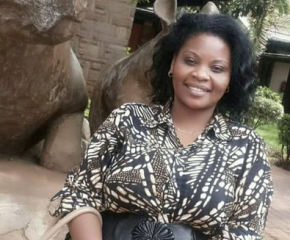
Catherine Watuka
Catherine Watuka is a civil, anti-war and women rights activist. She is currently the Executive Director of WUSETE (Women United for Social, Economic & Total Empowerment), an NGO which lobbies, advocates and fundraises for women initiatives. She has keen interest in International Relations, and expertise in diplomacy, conflict resolution, peace-building and gender mainstreaming in democratic institutions. In Kenya, she is championing reform in laws that disenfranchise women and change in political processes to increase women's political representation.
Catherine Watuka
Catherine Watuka is a civil, anti-war and women rights activist. She is currently the Executive Director of WUSETE (Women United for Social, Economic & Total Empowerment), an NGO which lobbies, advocates and fundraises for women initiatives. She has keen interest in International Relations, and expertise in diplomacy, conflict resolution, peace-building and gender mainstreaming in democratic institutions. In Kenya, she is championing reform in laws that disenfranchise women and change in political processes to increase women's political representation.
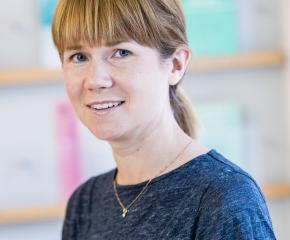
Johanna Rickne
Associate Professor in Economics at the Swedish Institute for Social Research, Stockholm University
Johanna Rickne is a Associate Professor in Economics at the Swedish Institute for Social Research at Stockholm University. Her research concerns gender quotas, careers in politics, and questions about family-work balance in the political and private sector.
Johanna Rickne
Associate Professor in Economics at the Swedish Institute for Social Research, Stockholm University
Johanna Rickne is a Associate Professor in Economics at the Swedish Institute for Social Research at Stockholm University. Her research concerns gender quotas, careers in politics, and questions about family-work balance in the political and private sector.

Diakhoumba Gassama
Anti-FGM Feminist Activist
Since 2014, Ms. Diakhoumba Gassama has been an independent International Legal Advisor working with governments, civil society organizations and UN Agencies on increasing women's political participation, their access to justice and realization of human rights through legal reform in Africa, the Asia-Pacific and Arab States regions. She is also supporting key national stakeholders in monitoring and evaluating the regional and national implementation of progressive human rights standards as enshrined in CEDAW and other international treaties guaranteeing inclusive democratic governance.
Diakhoumba Gassama
Anti-FGM Feminist Activist
Since 2014, Ms. Diakhoumba Gassama has been an independent International Legal Advisor working with governments, civil society organizations and UN Agencies on increasing women's political participation, their access to justice and realization of human rights through legal reform in Africa, the Asia-Pacific and Arab States regions. She is also supporting key national stakeholders in monitoring and evaluating the regional and national implementation of progressive human rights standards as enshrined in CEDAW and other international treaties guaranteeing inclusive democratic governance.
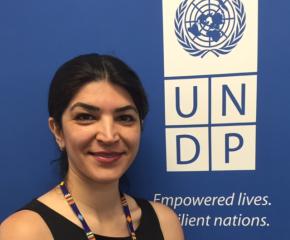
Nika Saeedi
Nika Saeedi is Policy Specialist, Gender, Political Process, and Peacebuilding as part of the Inclusive Political Process Cluster. She is responsible for Women’s Political Participation in UNDP. Nika has over 15 years’ experience, including 9 years of field experience and 6 years of working at UNDP/BCPR in policy development, program design and management, and partnership building on women peace and security (WPS) across conflict prevention, the rule of law, governance and early recovery. Nika has played a pivotal role in identifying UNDP’s niche in promoting women’s leadership in peacebuilding.
Nika Saeedi
Nika Saeedi is Policy Specialist, Gender, Political Process, and Peacebuilding as part of the Inclusive Political Process Cluster. She is responsible for Women’s Political Participation in UNDP. Nika has over 15 years’ experience, including 9 years of field experience and 6 years of working at UNDP/BCPR in policy development, program design and management, and partnership building on women peace and security (WPS) across conflict prevention, the rule of law, governance and early recovery. Nika has played a pivotal role in identifying UNDP’s niche in promoting women’s leadership in peacebuilding.
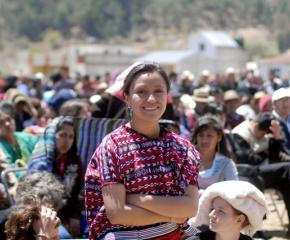
Andrea Ixchíu
Andrea Ixchíu is a K'iche de Totonicapán woman from Guatemala. She is a journalist and workshop facilitator dedicated to promoting indigenous women’s rights in Guatemala. Since childhood, Andrea has organized local campaigns to denounce violence against women in her community. She now delivers workshops to youth on preventing gender violence.
Andrea Ixchíu
Andrea Ixchíu is a K'iche de Totonicapán woman from Guatemala. She is a journalist and workshop facilitator dedicated to promoting indigenous women’s rights in Guatemala. Since childhood, Andrea has organized local campaigns to denounce violence against women in her community. She now delivers workshops to youth on preventing gender violence.

Graziele Ribeiro Grilo
"Because there's still a lot to be done and a lot to be fought for in order for women effectively achieve more political participation and representation."
Graziele is from Brazil, but currently lives in the USA due to an exchange program. She graduated in Political Science and Social Science from UNICAMP (State University of Campinas), and currently works as a freelancer translator. Graziele started volunteering when she was young, having participated for 4 years as a volunteer in a group that provided psychological support to teens, and has worked as a volunteer in the board of a recreation center for the past 6 years. Recently, she also translated documents for Equator Initiative, UNDP and UNDP ART Global Initiative. She is interested in politics, women, sports, religion, social rights, and media.
Author of: Law as a first step to equality
Graziele Ribeiro Grilo
"Because there's still a lot to be done and a lot to be fought for in order for women effectively achieve more political participation and representation."
Graziele is from Brazil, but currently lives in the USA due to an exchange program. She graduated in Political Science and Social Science from UNICAMP (State University of Campinas), and currently works as a freelancer translator. Graziele started volunteering when she was young, having participated for 4 years as a volunteer in a group that provided psychological support to teens, and has worked as a volunteer in the board of a recreation center for the past 6 years. Recently, she also translated documents for Equator Initiative, UNDP and UNDP ART Global Initiative. She is interested in politics, women, sports, religion, social rights, and media.
Author of: Law as a first step to equality
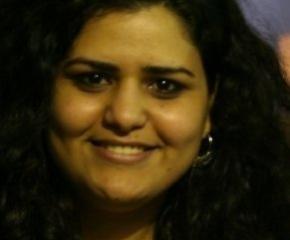
Maissan Hassan
Maissan Hassan is the Programs Manager at the Women and Memory Forum;a nongovernmental research centre in Egypt that focuses on gender issues in Arab cultural history.
She is an adviser in the MENA Region for FRIDA: The Young Feminist Fund and a co-founder and consultant at Nazra for Feminist Studies.
She is the co-author of Reclaiming & Redefining Rights. ICPD+20: Status of Sexual and Reproductive Health and Rights in the Middle East and North Africa . Cairo: EIPR, 2013. Maisan’s main interests include research, documentation and oral history on gender and women's issues. She holds a B.A. in Sociology and Film from the American University in Cairo. Currently, she is an M.A. student at the Cultural Heritage Studies Program at the French University in Egypt.
Maissan Hassan
Maissan Hassan is the Programs Manager at the Women and Memory Forum;a nongovernmental research centre in Egypt that focuses on gender issues in Arab cultural history.
She is an adviser in the MENA Region for FRIDA: The Young Feminist Fund and a co-founder and consultant at Nazra for Feminist Studies.
She is the co-author of Reclaiming & Redefining Rights. ICPD+20: Status of Sexual and Reproductive Health and Rights in the Middle East and North Africa . Cairo: EIPR, 2013. Maisan’s main interests include research, documentation and oral history on gender and women's issues. She holds a B.A. in Sociology and Film from the American University in Cairo. Currently, she is an M.A. student at the Cultural Heritage Studies Program at the French University in Egypt.
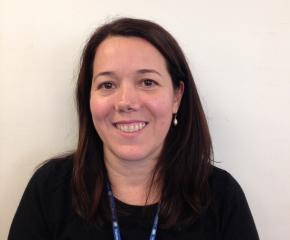
Aleida Ferreyra
Since 2010, Ms. Aleida Ferreyra has been a Policy Electoral Specialist for the United Nations Development Programme’s Global Programme for the Electoral Cycle Support (GPECS) based in New York. She is responsible for developing policy and knowledge in the area of electoral assistance, providing electoral support to UNDP country offices and managing the global, gender and the Latin America and the Caribbean and Europe and Commonwealth of Independent States regional components of the programme. From 2010 to 2012, she was also responsible for the regional electoral work in the Arab States region.
From 2005 to 2010, Ms. Ferreyra worked for UNDP as an electoral specialist and research analyst in the area of inclusive participation and elections. She was involved with policy development and the research, writing and production of several publications and training courses, including Elections and Conflict Prevention: A Guide to Analysis, Planning and Programming; UNDP Electoral Assistance Implementation Guide; Electoral Financing to Advance Women’s Political Participation: A Guide for UNDP Support, and the Electoral Systems and Process module of the Virtual Development Academy, among others.
Prior to her work at UNDP, Ms. Ferreyra taught Comparative Political Systems and Institutions at the New School University in New York and worked as programme coordinator of the Janey Program for Latin American Studies. She has worked as Regional Coordinator and Electoral Observer for several electoral missions with the Organization of American States from 1996 to 2002. She holds a M.A. and an MPhil in Political Science and Government from the New School for Social Research in New York and a B.A. in International Relations from the National Autonomous University of Mexico.
Aleida Ferreyra
Since 2010, Ms. Aleida Ferreyra has been a Policy Electoral Specialist for the United Nations Development Programme’s Global Programme for the Electoral Cycle Support (GPECS) based in New York. She is responsible for developing policy and knowledge in the area of electoral assistance, providing electoral support to UNDP country offices and managing the global, gender and the Latin America and the Caribbean and Europe and Commonwealth of Independent States regional components of the programme. From 2010 to 2012, she was also responsible for the regional electoral work in the Arab States region.
From 2005 to 2010, Ms. Ferreyra worked for UNDP as an electoral specialist and research analyst in the area of inclusive participation and elections. She was involved with policy development and the research, writing and production of several publications and training courses, including Elections and Conflict Prevention: A Guide to Analysis, Planning and Programming; UNDP Electoral Assistance Implementation Guide; Electoral Financing to Advance Women’s Political Participation: A Guide for UNDP Support, and the Electoral Systems and Process module of the Virtual Development Academy, among others.
Prior to her work at UNDP, Ms. Ferreyra taught Comparative Political Systems and Institutions at the New School University in New York and worked as programme coordinator of the Janey Program for Latin American Studies. She has worked as Regional Coordinator and Electoral Observer for several electoral missions with the Organization of American States from 1996 to 2002. She holds a M.A. and an MPhil in Political Science and Government from the New School for Social Research in New York and a B.A. in International Relations from the National Autonomous University of Mexico.
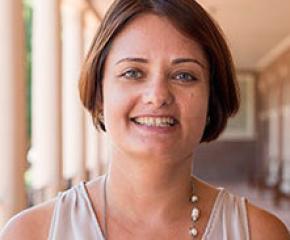
Farida Jalalzai
Dr. Farida Jalalzai is an Associate Professor and Chair of Political Science at the University of Missouri-St. Louis. Dr. Jalalzai's research analyzes the representation and behavior of women and minorities in politics and the role of gender in the political arena. Her work focuses on women national leaders (Women and Politics 2004; Politics & Gender 2008; International Political Science Review 2010, Journal of Women, Politics, & Policy 2010; German Politics 2010 ) gender and campaign coverage (Politics & Policy 2006), and the behavior of political widows compared to the husbands they replaced in Congress (Journal of Women, Politics, & Policy 2008; Social Science Journal 2014). Her first book Shattered, Cracked and Firmly Intact: Women and the Executive Glass Ceiling Worldwide (Oxford University Press 2013) offers a comprehensive analysis of women, gender, and national leadership positions. Currently, she is writing a second book examining several case studies of the behavior of women national leaders including presidents Laura Chinchilla (Costa Rica), President Dilma Rousseff (Brazil), Cristina Fernández Argentina (Beyond Family Ties-Women Presidents of Latin America, forthcoming Routledge Press ). She also researches Muslim American political behavior and discrimination since 9/11(Politics & Religion 2009; 2011).
Some of her other activities include chairing the Race, Gender, and Ethnicity section of the Northeastern Political Science Association and serving as a board member and Secretary for the St. Louis based organization, Interfaith Legal Services for Immigrants (ILSI). She is also the Advisor for the Sue Shear Institute for Women in Public Life’s Leadership Academy-a week long residential week long Leadership Academy for college students from nine public university and college campuses in Missouri (part of the NEW Leadership Programs).
Farida Jalalzai
Dr. Farida Jalalzai is an Associate Professor and Chair of Political Science at the University of Missouri-St. Louis. Dr. Jalalzai's research analyzes the representation and behavior of women and minorities in politics and the role of gender in the political arena. Her work focuses on women national leaders (Women and Politics 2004; Politics & Gender 2008; International Political Science Review 2010, Journal of Women, Politics, & Policy 2010; German Politics 2010 ) gender and campaign coverage (Politics & Policy 2006), and the behavior of political widows compared to the husbands they replaced in Congress (Journal of Women, Politics, & Policy 2008; Social Science Journal 2014). Her first book Shattered, Cracked and Firmly Intact: Women and the Executive Glass Ceiling Worldwide (Oxford University Press 2013) offers a comprehensive analysis of women, gender, and national leadership positions. Currently, she is writing a second book examining several case studies of the behavior of women national leaders including presidents Laura Chinchilla (Costa Rica), President Dilma Rousseff (Brazil), Cristina Fernández Argentina (Beyond Family Ties-Women Presidents of Latin America, forthcoming Routledge Press ). She also researches Muslim American political behavior and discrimination since 9/11(Politics & Religion 2009; 2011).
Some of her other activities include chairing the Race, Gender, and Ethnicity section of the Northeastern Political Science Association and serving as a board member and Secretary for the St. Louis based organization, Interfaith Legal Services for Immigrants (ILSI). She is also the Advisor for the Sue Shear Institute for Women in Public Life’s Leadership Academy-a week long residential week long Leadership Academy for college students from nine public university and college campuses in Missouri (part of the NEW Leadership Programs).
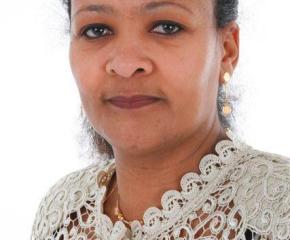
Ameena Alrasheed
Ameena Al Rasheed (PhD) University of Leeds, United Kingdom. Ameena is a former Regional Advisor for the Economic and Social Commission for Western Asia, worked as programme manager for gender and economic policy management with the UNDP. Ameena is a women peace and security consultant as well as gender equality and gender accountability consultant. Worked as a coordinator and assistant professor of gender and peace building at the University for Peace, Mandated UN University. Ameena is a NUFFIC and UAF scholar, author of Peformativity of Muslimness; the Intersection of Gender Race and Migration, Palgrave Macmillan, and published articles, and book chapters. She graduated with an honours degree in political science, and holds two master degrees in public Policy and administration and in gender culture and politics.
Ameena Alrasheed
Ameena Al Rasheed (PhD) University of Leeds, United Kingdom. Ameena is a former Regional Advisor for the Economic and Social Commission for Western Asia, worked as programme manager for gender and economic policy management with the UNDP. Ameena is a women peace and security consultant as well as gender equality and gender accountability consultant. Worked as a coordinator and assistant professor of gender and peace building at the University for Peace, Mandated UN University. Ameena is a NUFFIC and UAF scholar, author of Peformativity of Muslimness; the Intersection of Gender Race and Migration, Palgrave Macmillan, and published articles, and book chapters. She graduated with an honours degree in political science, and holds two master degrees in public Policy and administration and in gender culture and politics.
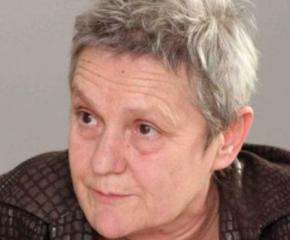
Sonja Lokar
Sonja Lokar is a sociologist and a specialist in political party development, social welfare state issues and gender issues. She has published more than 300 articles in Slovene, Croat, English, French and German languages. She was active as a researcher and political analyst. Lokar was also a Member of Parliament, elected in the first multiparty national election in Slovenia in 1990-1992.
Currently Sonja is an Executive director/coordinator of the Ljubljana SEE regional Office of the CEE Network for Gender Issues. She is also one of the initiators of the Stability Pact Gender Task Force and its chair since1999. She cooperates with various organizations (incl. OSCE, WB, NDI training programs and election observation missions).
Sonja Lokar
Sonja Lokar is a sociologist and a specialist in political party development, social welfare state issues and gender issues. She has published more than 300 articles in Slovene, Croat, English, French and German languages. She was active as a researcher and political analyst. Lokar was also a Member of Parliament, elected in the first multiparty national election in Slovenia in 1990-1992.
Currently Sonja is an Executive director/coordinator of the Ljubljana SEE regional Office of the CEE Network for Gender Issues. She is also one of the initiators of the Stability Pact Gender Task Force and its chair since1999. She cooperates with various organizations (incl. OSCE, WB, NDI training programs and election observation missions).
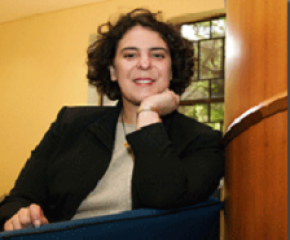
Sonia Palmieri
Dr Sonia Palmieri is a consultant in gender and political leadership, and was formerly the Policy Specialist on Political Participation at UN Women in New York. Prior to this, she established and managed the Pacific Women’s Parliamentary Partnerships project to support the capacity of women parliamentarians in the Pacific. She is the author of several publications in the field of gender and parliament, including IPU’s (2011) Gender Sensitive Parliaments: A global review of good practice and the OSCE ODIHR’s (2013) Comparative Study of Structures for Women MPs in the OSCE Region.
Sonia Palmieri
Dr Sonia Palmieri is a consultant in gender and political leadership, and was formerly the Policy Specialist on Political Participation at UN Women in New York. Prior to this, she established and managed the Pacific Women’s Parliamentary Partnerships project to support the capacity of women parliamentarians in the Pacific. She is the author of several publications in the field of gender and parliament, including IPU’s (2011) Gender Sensitive Parliaments: A global review of good practice and the OSCE ODIHR’s (2013) Comparative Study of Structures for Women MPs in the OSCE Region.
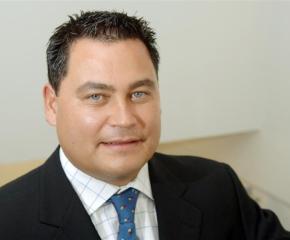
Charles Chauvel
Charles Chauvel left the New Zealand Parliament in March 2013 to begin work in New York as the Parliamentary Development Advisor to the United Nations Development Programme. He was Shadow Attorney-General, Shadow Minister for Justice, Courts and Corrections, chaired the NZ Parliament’s public accounts committee, scrutiny of regulations committee, and privileges committee, was Parliamentary Private Secretary to the Attorney-General, as well as shadow minister for environment, energy, and climate matters. He is the only person of Pacific Islands ancestry to have served on the front bench of any major NZ political party. He founded the NZ Chapter of the Global Organisation of Parliamentarians Against Corruption.
His previous governance experience includes: NZ Public Health Commissioner; chair of the NZ AIDS Foundation; deputy president of the NZ Lotteries Commission; deputy chair of the board of Meridian Energy Ltd, NZ’s largest renewable energy generator; board member of the Pacific Friends of the Global Fund Against AIDS, TB and Malaria; and UN Global Commissioner on HIV and the Law.
Charles Chauvel
Charles Chauvel left the New Zealand Parliament in March 2013 to begin work in New York as the Parliamentary Development Advisor to the United Nations Development Programme. He was Shadow Attorney-General, Shadow Minister for Justice, Courts and Corrections, chaired the NZ Parliament’s public accounts committee, scrutiny of regulations committee, and privileges committee, was Parliamentary Private Secretary to the Attorney-General, as well as shadow minister for environment, energy, and climate matters. He is the only person of Pacific Islands ancestry to have served on the front bench of any major NZ political party. He founded the NZ Chapter of the Global Organisation of Parliamentarians Against Corruption.
His previous governance experience includes: NZ Public Health Commissioner; chair of the NZ AIDS Foundation; deputy president of the NZ Lotteries Commission; deputy chair of the board of Meridian Energy Ltd, NZ’s largest renewable energy generator; board member of the Pacific Friends of the Global Fund Against AIDS, TB and Malaria; and UN Global Commissioner on HIV and the Law.
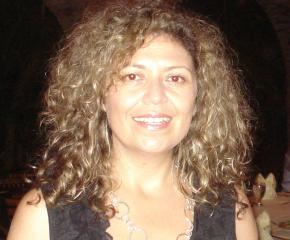
María Eugenia Rojas Valverde
Bolivian defender of women’s political rights, she has a degree in economics with a master’s level specialization in finance from the Bolivian Catholic University. She has completed various courses and diplomas, both national and international, in the areas of Public Service Management; Promoting Community Development; Participation, Administration and Planning of Municipal Projects; and Gender. For three years, she was the project manager and primary person in charge of programs for microcredits and SMEs directed at women. Given her experience over the span of fifteen years, her work is primarily oriented toward economic, political and social analysis, including the issue of gender, female associativism and municipal development, as well as the design and implementation of public policy, empowering women to participate and defend their rights in politics and gender equality in municipal management.
During her work as Executive Director of the Association of Bolivian Councilwomen (ACOBOL), she had conducted several studies, contributing to the quantitative and qualitative development of women’s political participation at the local level. Among her primary contributions is her pioneering research – now internationally recognized – on political harassment and violence toward women in public office at the municipal level, in which she identified and classified discriminatory practices in municipal management, as well as her writings on motives and various studies on the defense of women’s political rights in the political arena.
María Eugenia Rojas Valverde
Bolivian defender of women’s political rights, she has a degree in economics with a master’s level specialization in finance from the Bolivian Catholic University. She has completed various courses and diplomas, both national and international, in the areas of Public Service Management; Promoting Community Development; Participation, Administration and Planning of Municipal Projects; and Gender. For three years, she was the project manager and primary person in charge of programs for microcredits and SMEs directed at women. Given her experience over the span of fifteen years, her work is primarily oriented toward economic, political and social analysis, including the issue of gender, female associativism and municipal development, as well as the design and implementation of public policy, empowering women to participate and defend their rights in politics and gender equality in municipal management.
During her work as Executive Director of the Association of Bolivian Councilwomen (ACOBOL), she had conducted several studies, contributing to the quantitative and qualitative development of women’s political participation at the local level. Among her primary contributions is her pioneering research – now internationally recognized – on political harassment and violence toward women in public office at the municipal level, in which she identified and classified discriminatory practices in municipal management, as well as her writings on motives and various studies on the defense of women’s political rights in the political arena.
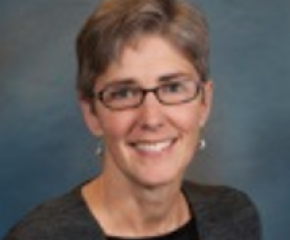
Gretchen Bauer
Gretchen Bauer is a university professor with a specialization in African Politics and Women in Politics, and has traveled, studied and worked extensively in East and Southern Africa. During the early years of her career her research and scholarship focused on democratization and civil society organizations in southern Africa. During a 2002 sabbatical leave she was a visiting researcher at the Institute for Public Policy Research in Windhoek, Namibia and conducted extensive interviews with and research on women Members of Parliament in Namibia’s lower and upper houses. That research resulted in a 2004 Journal of Modern African Studies article on women in parliament in Namibia and a 2006 book, co-edited with Hannah Britton, Women in African Parliaments. She presented this work at the Women’s Worlds conferences in Uganda and South Korea. More recently She has examined the impact of choice of electoral system on women’s descriptive representation and the implications of different types of electoral gender quotas on women’s substantive representation in several east and southern African countries. This work is currently under review. Professor Bauer is currently Chair of the Department of Political Science and International Relations at the University of Delaware, in Newark, DE, USA.
Gretchen Bauer
Gretchen Bauer is a university professor with a specialization in African Politics and Women in Politics, and has traveled, studied and worked extensively in East and Southern Africa. During the early years of her career her research and scholarship focused on democratization and civil society organizations in southern Africa. During a 2002 sabbatical leave she was a visiting researcher at the Institute for Public Policy Research in Windhoek, Namibia and conducted extensive interviews with and research on women Members of Parliament in Namibia’s lower and upper houses. That research resulted in a 2004 Journal of Modern African Studies article on women in parliament in Namibia and a 2006 book, co-edited with Hannah Britton, Women in African Parliaments. She presented this work at the Women’s Worlds conferences in Uganda and South Korea. More recently She has examined the impact of choice of electoral system on women’s descriptive representation and the implications of different types of electoral gender quotas on women’s substantive representation in several east and southern African countries. This work is currently under review. Professor Bauer is currently Chair of the Department of Political Science and International Relations at the University of Delaware, in Newark, DE, USA.
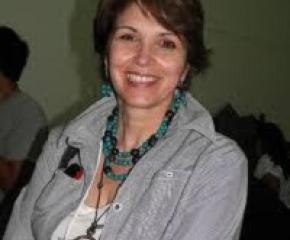
Erika Brockmann
Erika Brockmann is a psychologist by training. She completed graduate studies in gender and development, political science and democracy studies. Ms. Brockmann was a Member of Parliament of Bolivia from 1997 to 2005, representing the Left Revolutionary Movement (Social Democrats), a party she has been member of for 30 years. She was the fourth primary woman senator in the country’s history. She also presided over the Senate’s Decentralisation and Local Development Committee for five years and promoted the formation of the first commissions for parliamentary ethics in the Senate and the Chamber of Deputies. Ms. Brockmann has promoted and proposed important legislative initiatives both nationally and locally on the issues of gender equality and constitutional reforms from 2002 to 2004. She has currently placed her party membership aside in order to participate in the Council of the PRISMA Institute and serves as commenter in various academic circles for political refection. She has authored a range of publications and writes columns for several important newspapers. She furthermore facilitates inter-party events and gives speeches at national and international forums. She is founder and board member of the Gregoria Apaza Centre for the Promotion of Women and Women’s Coordinator. Ms. Brockmann was also recognised on October 27th 2007 with the Democratic Merit Award for her contributions during 25 years of building democracy.
Erika Brockmann
Erika Brockmann is a psychologist by training. She completed graduate studies in gender and development, political science and democracy studies. Ms. Brockmann was a Member of Parliament of Bolivia from 1997 to 2005, representing the Left Revolutionary Movement (Social Democrats), a party she has been member of for 30 years. She was the fourth primary woman senator in the country’s history. She also presided over the Senate’s Decentralisation and Local Development Committee for five years and promoted the formation of the first commissions for parliamentary ethics in the Senate and the Chamber of Deputies. Ms. Brockmann has promoted and proposed important legislative initiatives both nationally and locally on the issues of gender equality and constitutional reforms from 2002 to 2004. She has currently placed her party membership aside in order to participate in the Council of the PRISMA Institute and serves as commenter in various academic circles for political refection. She has authored a range of publications and writes columns for several important newspapers. She furthermore facilitates inter-party events and gives speeches at national and international forums. She is founder and board member of the Gregoria Apaza Centre for the Promotion of Women and Women’s Coordinator. Ms. Brockmann was also recognised on October 27th 2007 with the Democratic Merit Award for her contributions during 25 years of building democracy.
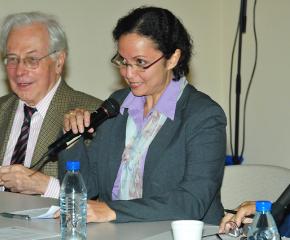
Noha El-Mikawy
Noha El-Mikawy is a Governance and Poverty Advisor at the Oslo Governance Centre. She has contributed to UNDP programme and project formulation in the areas of parliamentary strengthening, anti-corruption and public sector reform, judicial reform and gender empowerment in Arab middle income countries, Arab countries in (post) conflict, as well as oil-rich states. Ms. El-Mikawy has taught politics of the Middle East at the American University in Cairo and at the Free University of Berlin and Erlangen University in Germany. She coordinated comparative research on the political economy of reform at the Centre for Development Research at the University of Bonn. She published on the political economy of reform in Egypt, Morocco and Jordan, e.g. Building Consensus in Egypt's Transition Process (1999) and Institutional Reform and Economic Development (2002). She holds a Ph.D. from the University of California in Los Angeles.
Noha El-Mikawy
Noha El-Mikawy is a Governance and Poverty Advisor at the Oslo Governance Centre. She has contributed to UNDP programme and project formulation in the areas of parliamentary strengthening, anti-corruption and public sector reform, judicial reform and gender empowerment in Arab middle income countries, Arab countries in (post) conflict, as well as oil-rich states. Ms. El-Mikawy has taught politics of the Middle East at the American University in Cairo and at the Free University of Berlin and Erlangen University in Germany. She coordinated comparative research on the political economy of reform at the Centre for Development Research at the University of Bonn. She published on the political economy of reform in Egypt, Morocco and Jordan, e.g. Building Consensus in Egypt's Transition Process (1999) and Institutional Reform and Economic Development (2002). She holds a Ph.D. from the University of California in Los Angeles.
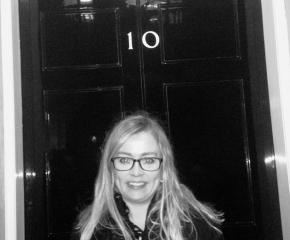
Julie Ballington
Julie Ballington is the Policy Advisor on Political Participation in the Leadership and Governance Section at UN-Women. She oversees the section’s work on women’s political participation, including in electoral assistance, parliamentary strengthening, political party support and governance at the local level. She previously served as UNDP’s Gender Advisor in the Global Programme on Elections within the Division for Democratic Governance.
Prior to joining the United Nations, Julie was the Programme Specialist in the Gender Partnership Programme at the Inter-Parliamentary Union based in Geneva, where she worked on enhancing women’s participation in parliaments, electoral processes and within political parties. She also led the project on Gender Sensitive Parliaments assessments and research. From 2001-2005 she was responsible for the Women in Politics Programme at International IDEA in Stockholm, where she initiated the global project on Electoral Quotas for Women. She also previously worked at the Electoral Institute of Southern Africa (EISA) based in Johannesburg, managing the work on gender related aspects of electoral participation and administration in southern Africa, and was seconded for a short time to the Independent Electoral Commission of South Africa during the 2004 election. She has also participated in several electoral observation missions in Africa and the Middle East.
Julie holds a Master’s degree in political science from the University of Witwatersrand in Johannesburg, South Africa and a Bachelor’s degree in political science and philosophy from Auckland University, New Zealand.
Julie Ballington
Julie Ballington is the Policy Advisor on Political Participation in the Leadership and Governance Section at UN-Women. She oversees the section’s work on women’s political participation, including in electoral assistance, parliamentary strengthening, political party support and governance at the local level. She previously served as UNDP’s Gender Advisor in the Global Programme on Elections within the Division for Democratic Governance.
Prior to joining the United Nations, Julie was the Programme Specialist in the Gender Partnership Programme at the Inter-Parliamentary Union based in Geneva, where she worked on enhancing women’s participation in parliaments, electoral processes and within political parties. She also led the project on Gender Sensitive Parliaments assessments and research. From 2001-2005 she was responsible for the Women in Politics Programme at International IDEA in Stockholm, where she initiated the global project on Electoral Quotas for Women. She also previously worked at the Electoral Institute of Southern Africa (EISA) based in Johannesburg, managing the work on gender related aspects of electoral participation and administration in southern Africa, and was seconded for a short time to the Independent Electoral Commission of South Africa during the 2004 election. She has also participated in several electoral observation missions in Africa and the Middle East.
Julie holds a Master’s degree in political science from the University of Witwatersrand in Johannesburg, South Africa and a Bachelor’s degree in political science and philosophy from Auckland University, New Zealand.
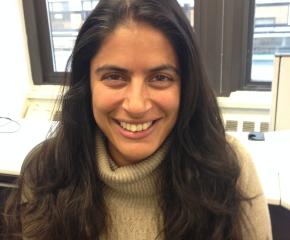
Charmaine Rodrigues
Charmaine Rodrigues is the Pacific Regional Legislative Strengthening Expert at the UNDP Pacific Center based in Suva. The Center services 3 Pacific country offices and covers a parish of 15 Pacific Island countries. Ms. Rodrigues' work focuses on providing regional and national technical support to Pacific parliaments and parliamentary support projects. Recognizing that the Pacific has the lowest numbers of women parliamentarians in the world, her program also includes support to increase women's representation. Prior to joining UNDP, Ms. Rodrigues worked as a policy advocate at the Commonwealth Human Rights Initiative in New Delhi. She focused on promoting the right to information in the 53 countries of the Commonwealth. Ms. Rodrigues has also worked with the Australian Agency for International Development and is a qualified lawyer.
Charmaine Rodrigues
Charmaine Rodrigues is the Pacific Regional Legislative Strengthening Expert at the UNDP Pacific Center based in Suva. The Center services 3 Pacific country offices and covers a parish of 15 Pacific Island countries. Ms. Rodrigues' work focuses on providing regional and national technical support to Pacific parliaments and parliamentary support projects. Recognizing that the Pacific has the lowest numbers of women parliamentarians in the world, her program also includes support to increase women's representation. Prior to joining UNDP, Ms. Rodrigues worked as a policy advocate at the Commonwealth Human Rights Initiative in New Delhi. She focused on promoting the right to information in the 53 countries of the Commonwealth. Ms. Rodrigues has also worked with the Australian Agency for International Development and is a qualified lawyer.
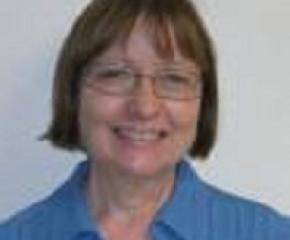
Barbara Norrander
Barbara Norrander is Professor of Political Science at the University of Arizona. She studies gender differences in public opinion and voting behavior. In particular, she has investigated the gender gap in partisanship and issue positions. Professor Norrander also investigates factors influencing the election of women to public office, with special emphasis on explaining the election of women to the 50 U.S. state legislatures. Beyond her work on gender and politics, Professor Norrander also conducts research on public attitudes on a variety of social issues, the link between public opinion and policies in the U.S. states, and the nomination of candidates for the U.S. presidency.
Barbara Norrander
Barbara Norrander is Professor of Political Science at the University of Arizona. She studies gender differences in public opinion and voting behavior. In particular, she has investigated the gender gap in partisanship and issue positions. Professor Norrander also investigates factors influencing the election of women to public office, with special emphasis on explaining the election of women to the 50 U.S. state legislatures. Beyond her work on gender and politics, Professor Norrander also conducts research on public attitudes on a variety of social issues, the link between public opinion and policies in the U.S. states, and the nomination of candidates for the U.S. presidency.
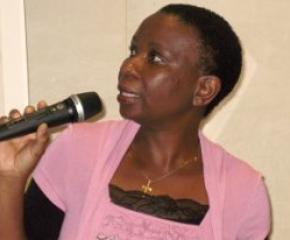
Rumbidzai Nhundu
Rumbidzai Nhundu is a multi-disciplinary Gender practitioner, with several years of hands-on professional experience on Gender Equality and Women’s Empowerment initiatives at national, regional and international levels. Competent in the area of knowledge transfer and training on gender mainstreaming in institutions including Parliaments, democracy and governance processes and systems, management of electoral processes from a gender perspective and Additional Empowerment Strategies design and facilitation for women in politics.
Rumbidzai Nhundu
Rumbidzai Nhundu is a multi-disciplinary Gender practitioner, with several years of hands-on professional experience on Gender Equality and Women’s Empowerment initiatives at national, regional and international levels. Competent in the area of knowledge transfer and training on gender mainstreaming in institutions including Parliaments, democracy and governance processes and systems, management of electoral processes from a gender perspective and Additional Empowerment Strategies design and facilitation for women in politics.